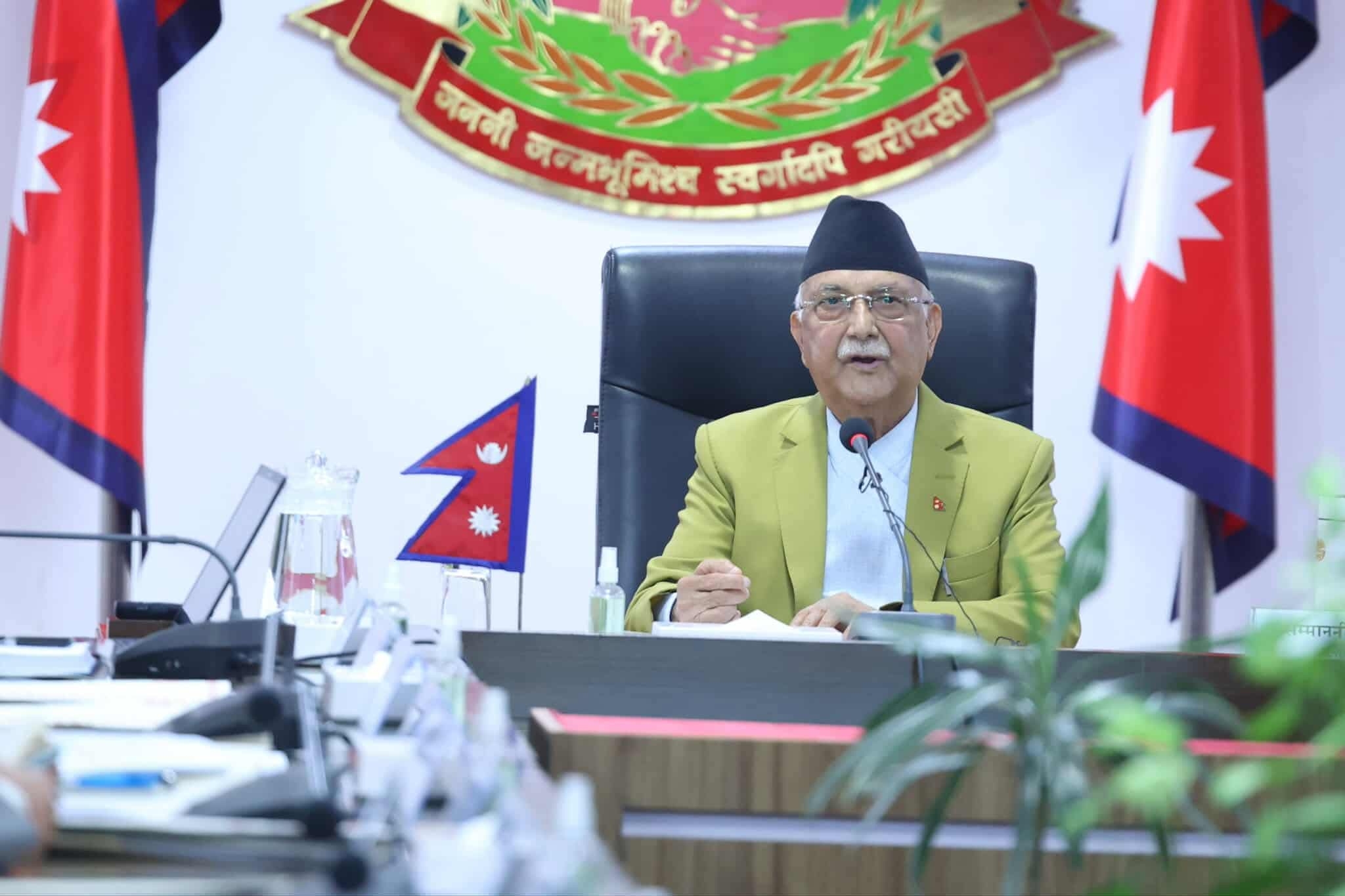

KATHMANDU: Prime Minister KP Sharma Oli has directed concerned authorities to put an end to the trend of development projects being delayed and costing significantly more than estimated, which ultimately burdens the people.
Chairing the 54th meeting of the National Development Problem-Solving Committee held today at the Office of the Prime Minister and Council of Ministers in Singha Durbar, PM Oli emphasized that despite prioritizing development, projects are not progressing as expected.
He called for the identification of underlying problems and the formulation of a clear and effective action plan.
Expressing concern over delays in awarding contracts for remaining works of the Sunkoshi-Marin Diversion Project, despite completion of the tunnel, Oli remarked, “Such tendencies prevent timely results and output.”
Addressing fertilizer shortages, he criticized the current policy framework, saying, “We have a policy of providing fertilizer subsidies, but farmers don’t get fertilizers on time. Let’s not mislead the people. Instead, reduce the subsidy and ensure timely supply.”
Citing a stark example, he said, “A project that began with an estimated cost of Rs 12 billion is now projected to cost Rs 52 billion. How did we end up here? Should those who commit such gross negligence not be held accountable?”
Stressing the need for drastic changes, PM Oli said if contractors or project models fail to deliver, alternative approaches must be adopted.
He called for a revolutionary shift in how development work is implemented—efficiently and with full accountability.
The meeting, which lasted over four hours, included participation from deputy prime ministers, ministers, chief ministers of provinces, the chief secretary, and other top bureaucrats.
They discussed problems and solutions related to various ministries’ development projects.
PM Oli orders overhaul of delayed, over-budget development projects
Prime Minister KP Sharma Oli has directed concerned authorities to put an end to the trend of development projects being delayed and costing significantly more than estimated, which ultimately burdens the people.
Chairing the 54th meeting of the National Development Problem-Solving Committee held today at the Office of the Prime Minister and Council of Ministers in Singha Durbar, PM Oli emphasized that despite prioritizing development, projects are not progressing as expected.
He called for the identification of underlying problems and the formulation of a clear and effective action plan.
Expressing concern over delays in awarding contracts for remaining works of the Sunkoshi-Marin Diversion Project, despite completion of the tunnel, Oli remarked, “Such tendencies prevent timely results and output.”
Addressing fertilizer shortages, he criticized the current policy framework, saying, “We have a policy of providing fertilizer subsidies, but farmers don’t get fertilizers on time. Let’s not mislead the people. Instead, reduce the subsidy and ensure timely supply.”
Citing a stark example, he said, “A project that began with an estimated cost of Rs 12 billion is now projected to cost Rs 52 billion. How did we end up here? Should those who commit such gross negligence not be held accountable?”
Stressing the need for drastic changes, PM Oli said if contractors or project models fail to deliver, alternative approaches must be adopted.
He called for a revolutionary shift in how development work is implemented—efficiently and with full accountability.
The meeting, which lasted over four hours, included participation from deputy prime ministers, ministers, chief ministers of provinces, the chief secretary, and other top bureaucrats.
They discussed problems and solutions related to various ministries’ development projects.
During the meeting, Vice Chairperson of the National Planning Commission Prof. Dr. Shivaraj Adhikari presented updates on key economic indicators, the status of public finance mobilization, progress in social and infrastructure development, sustainable development goals, Nepal’s transition to a developing country, and implementation status of decisions made in previous committee meetings.